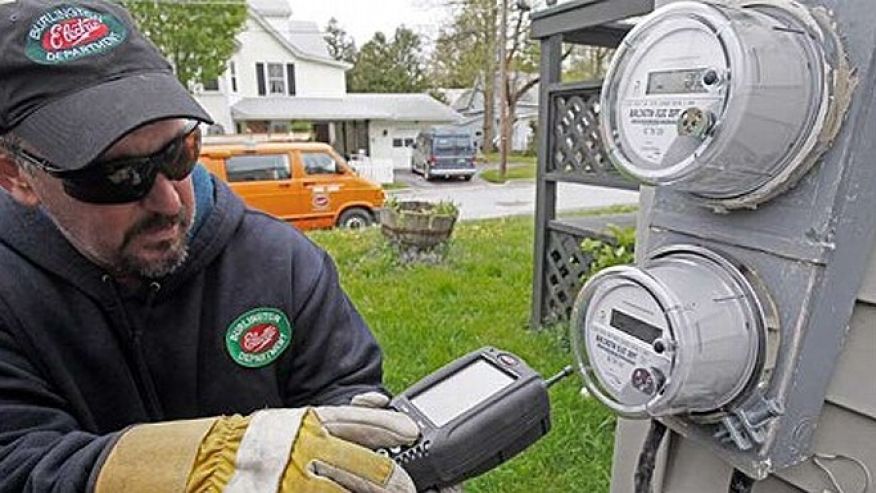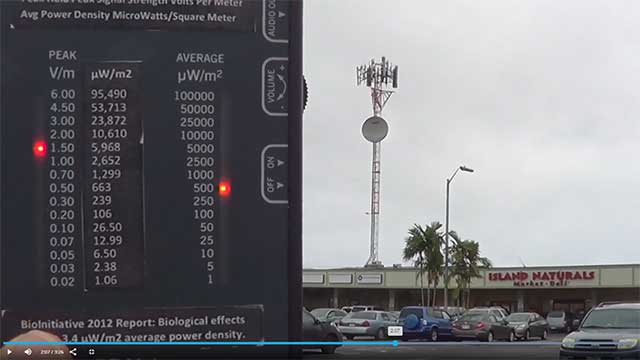New legislation in North Carolina would allow harmful 5G cell towers in neighborhoods; no citizen feedback allowed
06/06/2017 / By Ethan Huff

The telecommunications industry can’t wait to release the next generation of mobile phone technology, a controversial network standard known as 5G, which could be unveiled as soon as 2019. But many citizens who will be directly affected by the technology’s high-intensity radio frequencies (RFs) aren’t being kept in the loop about what’s going on, including in the state of North Carolina where legislators are right now pushing to have 5G towers located in neighborhoods without the consent of local residents.
House Bill (H.B.) 310 would allow for 5G transmitters to be installed on existing towers in public rights-of-way, greenways, conservation lands, and other types of property outside of rights-of-way (with the exception of single-family residences), without any input whatsoever from those who live near these future transmitter facilities. It would also go a step further in actually barring local governments from passing their own laws to prevent this technological invasion from occurring against the will of the people – all, of course, for the benefit of mobile phone providers.
Dubbed the “Wireless Communications Infrastructure Siting” bill, H.B. 310 was put together in secret by a panel of industry stakeholders and local government representatives, with no input from members of the public who will be affected by it. The bill’s primary sponsor, Representative Jason Saine (R-Lincolnton), is also on record as having received over $20,000 in campaign contributions from the telecom industry, according to VoteSmart.org, which says a lot about who’s calling the shots in trying to get it passed.
“If you live in a single-family home near a light post, a water tower, or other public facility, 5G will be broadcast around you,” warns Laura Combs, a citizen activist from Raleigh who’s been actively following the legislation’s progress and attending General Assembly (NCGA) meetings to voice her objections. “If you live in a multi-family residence such as a condominium or an apartment building or duplex, you could be forced to broadcast 5G and live with it – and you won’t have any recourse in stopping it. Perhaps even more concerning is that these facilities could be attached to schools, daycares, recreation centers and other facilities used by kids.”
Tell your legislators to say NO to 5G
The general public is already being bombarded day in and day out with RFs from 2G, 3G, 4G, and LTE technologies that a $25 million study conducted by the U.S. National Toxicology Program (NTP) found are linked to causing serious health problems in mammals, including cancers of the brain and heart. Now with 5G on the horizon, the threat has increased substantially as 5G is much more powerful than these other types of RFs, and involves the use of a much greater number of transmission towers due to the limited distance that it can travel.
“…[T]he launch of super-fast 5G technology over the next several years will dramatically increase the number of transmitters sending signals to cellphones and a host of new Internet-enabled devices, including smart appliances and autonomous vehicles,” writes Jim Puzzanghera for The Los Angeles Times.
The Federal Communications Commission (FCC) has already ramrodded approval for 5G across the U.S. with a unanimous vote, despite a lack of evidence showing its safety. The next step is for individual states to deliberate its implementation, which means the time is now for local citizens to speak up and demand accountability from their legislators who may attempt to sidestep their constituents in rushing 5G into existence, just like what’s currently happening in North Carolina.
After rejecting an effort to amend the bill to allow further study of the 5G issue, the North Carolina House of Representatives has reportedly passed H.B. 310. It will now go on to the Senate, however, where it can still be stopped. Whether you’re a resident of the state or not, you are free to express your concerns about 5G and urge the NC Senate to include the public in these important deliberations about its implementation by visiting the NCGA website and using the contact tool to reach the state’s Senate members.
Sources:
Tagged Under: 5g, government, Tyranny


















